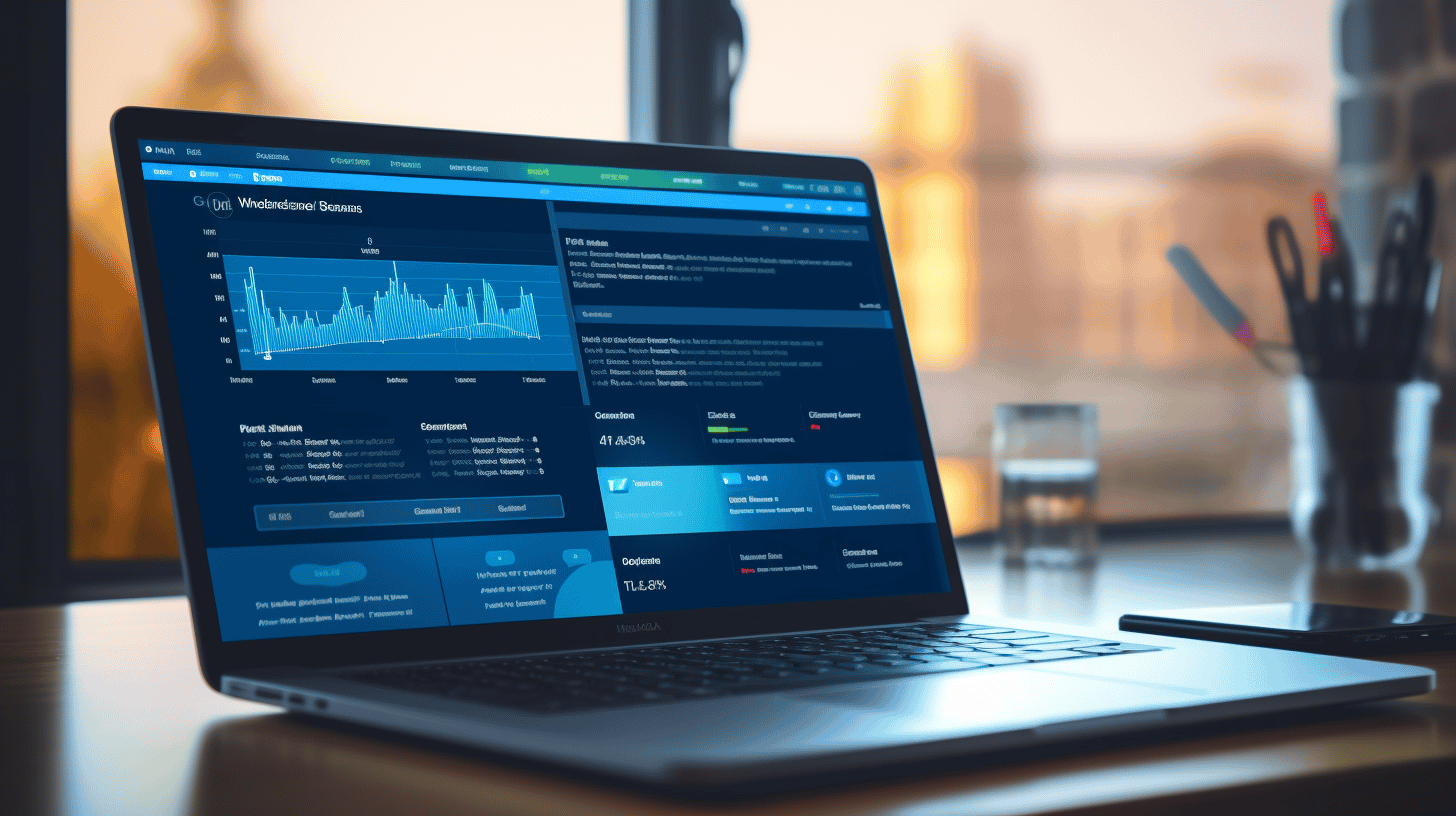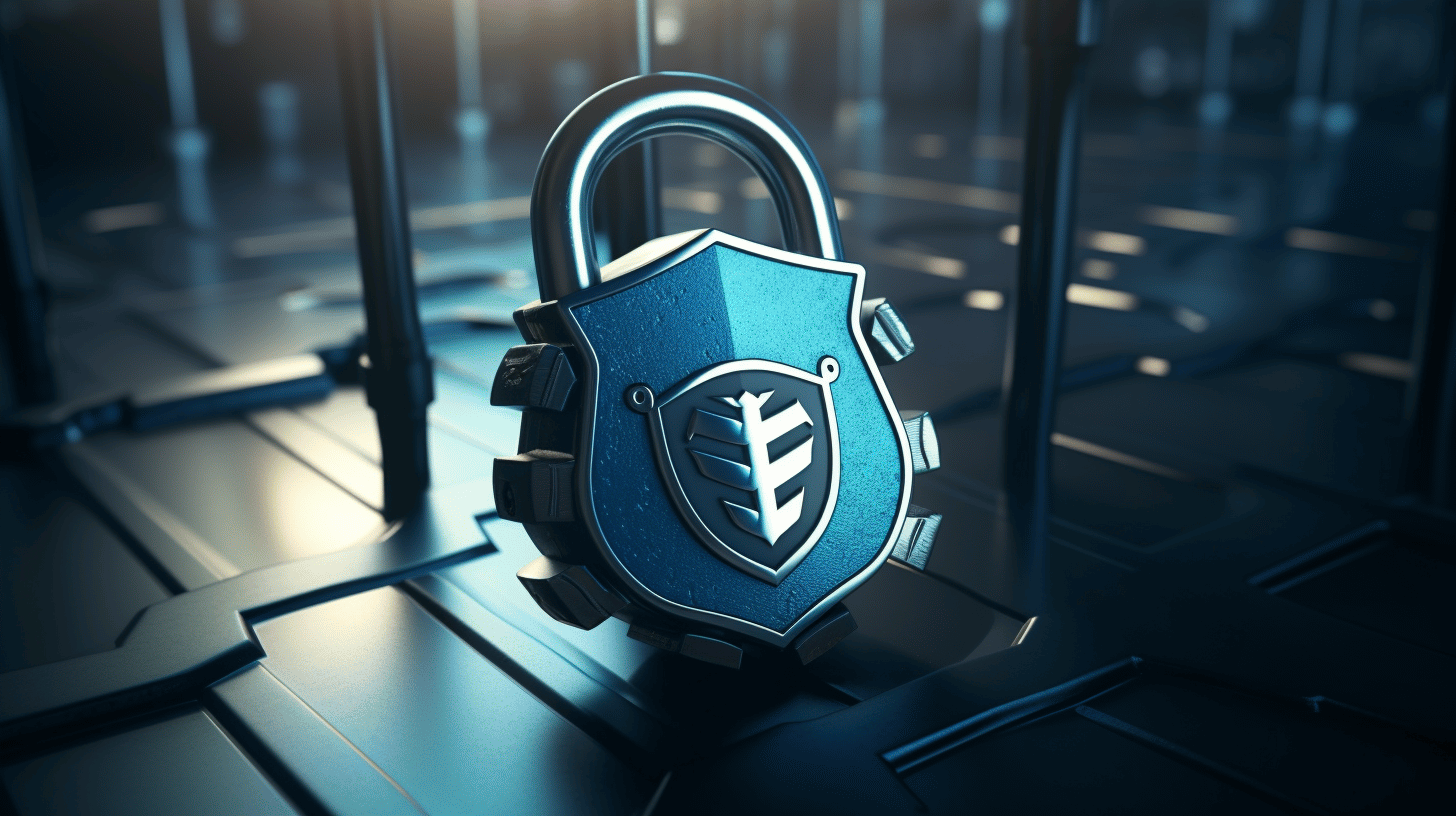在當今的數位環境中,小型企業嚴重依賴其線上業務來聯繫客戶、推廣其產品或服務並推動銷售。最受歡迎的網站建立和管理平台之一是 WordPress。 WordPress 擁有用戶友好的介面和大量可自訂的主題和插件,為希望建立專業線上形象的企業提供了絕佳的解決方案。
然而,能力越大,責任越大。網路威脅和攻擊的日益猖獗使得網站安全成為小型企業的首要任務。保護您的 WordPress 網站免受潛在漏洞和安全漏洞的侵害對於維護您的企業聲譽、客戶信任和敏感資料至關重要。
在本文中,我們將探討 WordPress 安全性對於小型企業的重要性。我們將深入研究可能導致您的網站遭受攻擊的潛在漏洞,並提供令人震驚的統計數據來強調強有力的安全措施的必要性。透過了解風險和後果,您將能夠更好地採取主動措施有效地保護您的 WordPress 網站。
所以,繫好安全帶,因為我們即將踏上一段旅程,這段旅程將為你提供必要的知識和實用技巧,以加強你的在線形象,並保護你的小企業免受潛在的安全威脅。讓我們開始吧! 🚀
WordPress 安全的重要性
介紹
WordPress 是一種流行的內容管理系統 (CMS),為全球數百萬個網站提供支援。雖然它提供了極大的靈活性和用戶友好的功能,但在使用 WordPress 時解決安全問題非常重要。忽視安全措施可能會使您的網站容易受到潛在的威脅和攻擊,從而危及您的資料和訪客的體驗。在本文中,我們將深入探討 WordPress 安全性的重要性並提供如何保護您的網站的見解。
潛在漏洞
由於其受歡迎程度,WordPress 成為駭客和網路犯罪分子的主要目標。有一種誤解認為 WordPress 本質上不安全,但這並不完全準確。這些漏洞通常是由於以下因素引起的:
- 過時的軟體:未能更新您的 WordPress 核心、主題和外掛程式可能會導致您的網站暴露於後續版本中已修補的安全漏洞。定期更新對於確保您網站的安全至關重要。
- 憑證薄弱:使用弱密碼或「admin」等預設使用者名稱會使駭客更容易未經授權存取您的網站。強大而獨特的憑證對於保護您的 WordPress 登入至關重要。
- 不安全的主題和插件:並非所有適用於 WordPress 的主題和外掛都是平等的。有些可能存在可被駭客利用的漏洞。使用來自可信任來源的知名主題和外掛程式至關重要。
安全漏洞統計
要了解 WordPress 安全的重要性,必須查看突出所涉及風險的安全漏洞統計資料:
- 根據 Sucuri 的報告,在分析的被駭客入侵的網站中,94% 個網站使用的是舊版的 WordPress。
- Wordfence 的一項研究表明,暴力攻擊(駭客試圖猜測您的登入憑證)是針對 WordPress 網站最常見的攻擊方法之一。
- Imperva 的研究顯示,分散式阻斷服務 (DDoS) 攻擊(導致網站流量超載)近年來增加了 68%。
這些統計數據表明,忽視安全措施可能會對您的 WordPress 網站帶來嚴重後果。作為網站所有者,採取適當措施加強網站的安全性非常重要。
為了揭穿 WordPress 安全性的常見誤解,請查看此內容 關於保護您的網站的文章.
請記住,安全的網站不僅是為了保護您的數據,而且還為了維護訪客的信任並維護您的線上聲譽。不要在安全方面妥協,將其作為您的 WordPress 網站的首要任務!
小型企業的 WordPress 安全措施
🔒 您的小型企業是否使用 WordPress 來支援其網站?確保您的 WordPress 網站的安全性對於保護您的線上狀態和保護敏感的客戶資訊至關重要。在本文中,我們將探討小型企業可以實施的一些基本安全措施,以確保其 WordPress 網站的安全。
WordPress 版本頻繁更新
增強 WordPress 網站安全性的最簡單但最有效的方法之一是定期更新 WordPress 版本。更新通常包括安全性修補程式和錯誤修復,解決可能被駭客利用的漏洞。透過保持更新至最新的 WordPress 版本,您可以確保您的網站具有必要的安全性增強功能。
若要更新您的 WordPress 版本,請依照下列步驟操作:
- 登入您的 WordPress 儀表板。
- 轉到“儀表板”選單並點擊“更新”。
- 點擊「立即更新」按鈕來更新您的 WordPress 版本。
請記住,在執行任何更新之前務必備份您的網站,以避免任何潛在問題。
投資可靠的安全插件
增強 WordPress 安全性的另一個有效策略是投資可靠的安全性外掛程式。安全插件透過主動監控您的網站是否有可疑活動並阻止潛在威脅來提供額外的保護層。它們可以幫助防止暴力攻擊、惡意軟體注入和未經授權的存取嘗試。
以下是一些您可以考慮的熱門安全插件:
- 蘇庫里安全 – 提供一套安全功能,包括惡意軟體掃描、安全活動稽核和網站防火牆。
- 字柵欄 – 提供即時威脅防禦和防火牆保護,以及惡意軟體掃描和登入安全功能。
- i主題安全 – 提供一系列安全功能,如惡意軟體掃描、暴力攻擊保護和檔案變更偵測。
確保研究並選擇滿足您業務特定需求的安全插件。
強大的密碼策略
一個常見的安全漏洞是密碼太弱且容易被猜到。實施強大的密碼策略對於保護您的 WordPress 網站免受未經授權的存取至關重要。鼓勵您的員工和使用者遵循以下最佳做法來建立強密碼:
- 使用大寫和小寫字母、數字和特殊字元的組合。
- 避免使用常用字詞或容易猜到的訊息,例如出生日期或寵物名字。
- 定期更改密碼,避免在不同的平台或帳戶上重複使用密碼。
向您的團隊宣傳強密碼的重要性,可以大大防止未經授權存取您的 WordPress 網站。
使用者存取限制
限制使用者對您的 WordPress 網站的存取可以最大限度地降低未經授權的變更和潛在安全漏洞的風險。僅向需要履行工作職責的受信任的員工或使用者提供管理權限。應為其他使用者指派具有有限存取權限的較低等級的角色。
若要管理使用者訪問,請按照以下步驟操作:
- 登入您的 WordPress 儀表板。
- 轉到“使用者”選單,然後按一下“新增”以建立新使用者。
- 分配適當的使用者角色來限制他們的存取等級。
定期檢視並更新使用者存取權限,以確保只有授權個人才擁有必要的權限。
備份和復原計劃
儘管已經採取了所有安全措施,但制定備份和復原計畫以防發生任何不可預見的事件或安全漏洞仍然很重要。定期備份您的 WordPress 網站可確保您擁有網站資料的最新副本,這對於在發生任何資料遺失或安全問題時還原您的網站至關重要。
考慮實施以下備份做法:
- 安排定期自動備份您的 WordPress 網站。
- 將備份儲存在安全的位置,可以是本地存儲,也可以是基於雲端的存儲解決方案。
- 定期測試您的備份檔案以確保它們可以恢復。
透過定期備份您的網站,您可以最大限度地減少任何潛在安全事件的影響並快速恢復網站的功能。
請記住,保護您的 WordPress 網站是一個持續的過程,需要保持警惕並定期維護。透過實施這些安全措施,您可以大幅降低安全漏洞的風險並確保小型企業網站的安全。
了解 WordPress 使用者角色和權限
WordPress 是一個多功能且用戶友好的平台,可讓個人和企業輕鬆建立和管理他們的網站。 WordPress 的一個主要功能是其使用者角色管理系統,它使網站所有者能夠為不同的使用者分配特定的角色和權限。這有助於簡化工作流程、維護安全性並確保團隊內部的順利協作。
讓我們仔細看看 WordPress 中的各種使用者角色以及與每個角色相關的權限:
行政角色👑
這 行政人員 是 WordPress 中最強大的角色,可以完全控制網站的各個方面。指派此角色的個人可以新增、刪除和修改內容、管理外掛程式和主題、建立新使用者、為使用者指派角色,甚至變更網站設定。管理員本質上是網站的“守門人”,負責網站的整體管理和安全。
編輯角色📝
這 編輯 對於需要控制內容創建和編輯過程的人來說,角色是理想的。編輯者可以發布、修改和刪除貼文和頁面、管理類別和標籤、審核評論以及上傳媒體檔案。但是,他們無權存取更多管理功能,例如管理外掛程式或更改網站設定。
作者角色✍️
這 作者 該角色非常適合主要專注於創建和發布自己的內容的個人。作者可以創建和編輯自己的帖子,但無權發布或修改他人創建的帖子。他們還可以上傳媒體檔案來補充其內容。這個角色適合為網站做出貢獻的自由作家或部落客。
貢獻者角色🗒️
這 貢獻者 角色適用於向網站貢獻內容但沒有能力自行發佈內容的使用者。貢獻者可以撰寫和編輯自己的帖子,然後提交給更高級別的用戶(例如編輯或管理員)審核後發布。貢獻者不能上傳媒體文件,並且只能在指定的職位內工作。
訂閱者角色👤
這 訂戶 role 是 WordPress 中最受限制的角色。訂閱者可以管理他們的用戶資料,編輯自己的詳細信息,並對已發布的帖子發表評論。訂閱者不能創建或修改網站上的任何內容,因此該角色適合希望隨時了解最新內容或接收新聞通訊的用戶。
表格總結了角色和能力:
| 使用者角色 | 功能 |
|---|---|
| 行政人員 | 所有功能,包括管理外掛程式和主題、建立用戶和更改網站設置 |
| 編輯 | 發布、修改和刪除貼文/頁面、管理類別和標籤、審核評論、上傳媒體 |
| 作者 | 創建和編輯自己的帖子,上傳媒體文件 |
| 貢獻者 | 撰寫和編輯自己的帖子,提交給更高級別的用戶審閱 |
| 訂戶 | 管理用戶個人資料,對已發佈的貼文發表評論 |
了解 WordPress 中的不同角色和權限對於有效的網站管理和協作至關重要。透過為使用者分配適當的角色,網站所有者可以確保每個人都擁有正確的存取和控制等級。這不僅有助於維護網站的安全,而且還有助於順暢的工作流程和內容發佈過程。因此,利用 WordPress 使用者角色來優化您的網站管理體驗!
WordPress 安全最佳實踐
🔒 簡介
確保您的 WordPress 網站的安全至關重要。隨著網路威脅和漏洞的不斷增加,實施最佳實踐來保護您的網站及其保存的敏感資訊至關重要。在本文中,我們將探討一些有助於您增強 WordPress 網站安全性的關鍵做法。
保持主題和外掛為最新
WordPress 安全的基本做法之一是定期更新主題和外掛程式。更新通常包含錯誤修復、安全性修補程式和功能增強。透過保持其最新狀態,您可以:
- 保持受保護狀態: 更新通常會解決舊版本中存在的任何安全漏洞,從而降低您的網站受到攻擊的風險。
- 提高性能: 更新可以增強您網站的功能和效能,從而帶來更好的使用者體驗。
- 避免相容性問題: 更新可確保您的主題和外掛程式與最新版本的 WordPress 相容,從而減少任何衝突或錯誤的可能性。
💡 專業提示:為了簡化更新過程,請為您的主題和外掛程式啟用自動更新。這樣,您可以確保始終運行最新、最安全的版本。
配置託管環境
您的 WordPress 網站的託管環境對其安全性起著至關重要的作用。遵循以下最佳做法來設定安全的託管環境:
- 選擇可靠的託管服務提供者: 選擇一家信譽良好的託管服務提供商,該服務提供商優先考慮安全性並提供防火牆、惡意軟體掃描、定期備份和 DDoS 保護等功能。
- 使用強密碼: 確保您的託管帳戶和資料庫密碼強大且唯一。避免使用常用密碼或容易猜測的密碼。
- 限制存取: 設定適當的文件權限並限制對敏感文件和目錄的存取。定期審查並刪除不必要的使用者帳戶和存取權限。
✅引言:
“保護您的託管環境是保護您的 WordPress 網站免受潛在安全漏洞侵害的基本步驟。” – 網站安全最佳實踐
SSL/HTTPS 的使用
確保您的網站與其訪客之間的通訊安全至關重要。實作 SSL(安全通訊端層)並啟用 HTTPS(安全超文本傳輸協定)有多種好處:
- 資料加密: SSL 對您的網站和訪客瀏覽器之間傳輸的資料進行加密,確保敏感資訊的安全。
- 信任與信譽: 在 URL 中顯示掛鎖圖示和「https://」可確保使用者他們正在造訪安全的網站,從而增強信任和可信度。
- SEO優勢: Google 將 SSL 和 HTTPS 視為排名因素,有可能提高您的網站在搜尋結果中的可見度。
🔑 專業提示:安裝受信任的 SSL 憑證並將您的 WordPress 網站設定為始終使用 HTTPS。此外,您可以使用 Really Simple SSL 等外掛程式來簡化該流程。
實施這些 WordPress 安全最佳實踐將有助於保護您的網站免受潛在威脅並維護訪客的信任。請記住,在安全性方面保持主動是確保 WordPress 網站安全的關鍵。
結論
總而言之,對於小型企業來說,優先考慮 WordPress 安全性對於保護其網站免受潛在漏洞和安全漏洞的侵害至關重要。透過實施必要的安全措施,例如保持 WordPress 版本更新、投資可靠的安全插件、實施強大的密碼策略、限制用戶訪問以及製定完善的備份和恢復計劃,企業可以顯著降低網路攻擊的風險。
此外,了解 WordPress 使用者角色和權限可以讓企業為不同的使用者分配適當的存取和控制級別,從而進一步增強安全性。此外,遵循最佳實踐,如保持主題和外掛程式保持最新、安全配置託管環境以及實施 SSL/HTTPS 加密,可以增加額外的保護層。
透過這些必要措施,小型企業可以保護他們的 WordPress 網站並確保其客戶的安全線上服務。請記住,維護網站安全是一個持續的過程,保持警覺是降低潛在風險的關鍵。
如果您正在尋找一個可靠且全面的 WordPress 託管平台,以簡化基礎架構、提供專家支援和主動監控,請考慮 Managed-WP™。透過他們管理的 WordPress 雲端託管服務,您可以放心,您的網站安全掌握在可靠的人手中。了解有關 Managed-WP™ 及其服務的更多信息 在这里,.
常見問題解答
- 對於小型企業來說,有哪些重要的 WordPress 安全提示?
一些針對小型企業的基本 WordPress 安全性提示包括:定期更新 WordPress、主題和外掛程式、使用強大而獨特的密碼、啟用雙重認證、限制登入嘗試次數、安裝可靠的安全性外掛程式、定期備份您的網站,並密切關注文件權限和使用者角色。
- 為什麼網站安全對小型企業很重要?
網站安全對於小型企業來說至關重要,因為它們經常成為駭客和網路犯罪分子的目標。安全的網站可以保護客戶資料、維護企業聲譽、防止停機和資料遺失,並確保線上服務的順暢和可靠。
- 如果我的 WordPress 網站被駭客入侵,會發生什麼事?
如果您的 WordPress 網站遭到駭客攻擊,則可能導致各種後果,例如敏感客戶資訊被盜、網站被破壞、被搜尋引擎列入黑名單、網站流量損失、商業聲譽受損以及潛在的法律和財務責任。
- 我應該多久更新一次 WordPress 網站?
建議在有更新可用時立即更新您的 WordPress 網站,包括主題和外掛。定期更新可確保您擁有最新的安全性修補程式、錯誤修復和相容性改進,從而降低漏洞風險。
- 我需要一個 WordPress 安全性外掛嗎?
是的,強烈建議 WordPress 網站使用安全性外掛。安全插件提供額外的保護層,例如防火牆、惡意軟體掃描、登入鎖定、IP 封鎖和安全通知,有助於防禦常見的安全威脅。



















